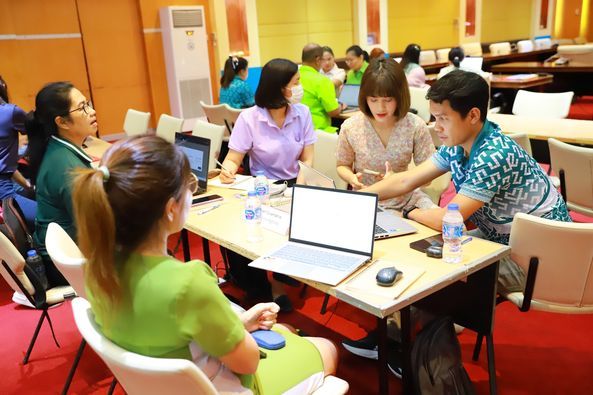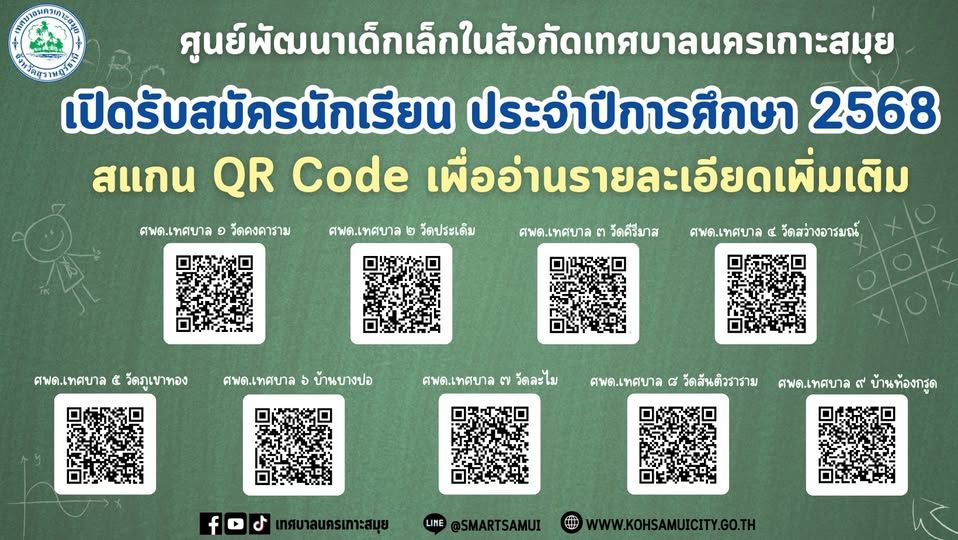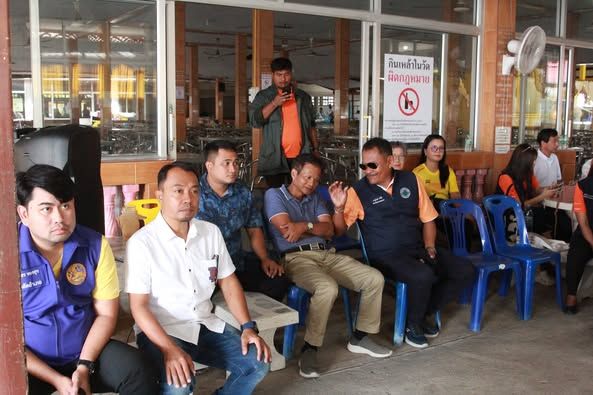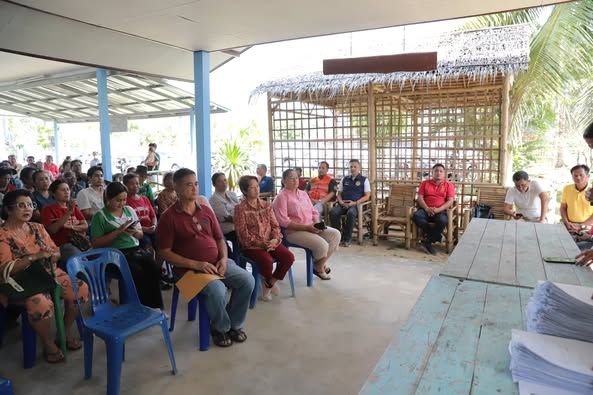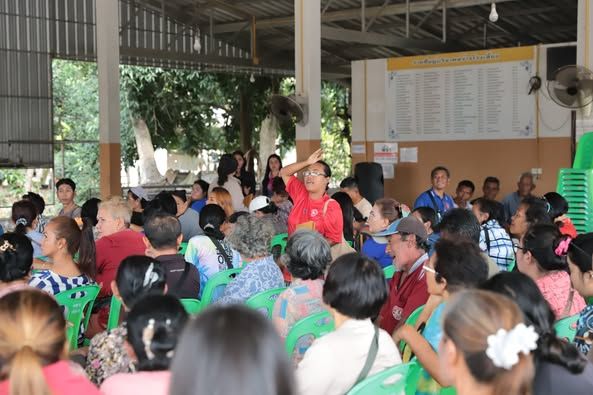Join us in Ko Samui as we embrace a smart future with experts from DEPA, turning theory into real-world solutions! 🌟🌴💻 #SmartCities #KoSamui #DigitalTransformation #InnovationJourney
🚀🔗 Follow the link for a glimpse of the journey towards a tech-savvy tomorrow in Ko Samui! #SmartCities #KoSamui #DigitalTransformation #InnovationJourney
Ko Samui, a gem in the Gulf of Thailand, is not just a vacation paradise but is also making strides in technological advancements. In 2024, a significant workshop was designed to propel the Ko Samui City Municipality into the era of smart cities.
A Step Towards Digital Transformation
At the break of dawn on May 29, 2024, the Samui Diamond Meeting Room buzzed with excitement and eagerness. Local officials, educators, and experts converged to embark on a journey of digital skill enhancement. The Digital Economy Promotion Agency’s (DEPA) involvement underpinned the seriousness of the endeavor. With their expertise, the stage was set for a transformative experience.
The Synergy of Theory and Practice
The workshop was structured to ensure a thorough understanding of smart city concepts and the application of technology. Trainees were taken through rigorous sessions that combined theoretical knowledge with hands-on practice, engaging them in the art of applying digital solutions to real-world scenarios.
Day 1: Foundation and Theory
The initial phase of the program focused on the core ideologies and strategies that drive a smart city. Subjects like Smart Economy and Smart Governance were not just buzzwords but painted a vision of a thriving, interconnected community.
Day 2: Hands-on with AI
Innovation was at the heart of the second day. Trainees experienced firsthand the power of Chat GPT, an AI marvel by OpenAI. They delved into creating solutions for urban challenges, transforming theoretical knowledge into actionable insights. This was not about reading from a script; it was about writing the future.
Building Blocks of a Smart City
The curriculum was designed to address seven key areas deemed essential for smart city development:
- Smart Economy: Where economic growth meets digital efficiency.
- Smart Mobility: Transportation that’s as fluid as the island’s waters.
- Smart Energy: Power generation and consumption with sustainability at the core.
- Smart Environment: Harmony between nature’s beauty and the urban landscape.
- Smart Living: Enhancing the quality of life with technology’s touch.
- Smart People: Empowering citizens with knowledge and digital literacy.
- Smart Governance: Streamlined administration for a responsive municipality.
These topics were not merely discussed; they were dissected, understood, and molded into tangible targets.
A Visionary Approach to Urban Development
The interactive sessions aimed to equip participants with the ability to scrutinize and envision how each aspect could transform their municipality. The goal was clear: to forge a path towards a future where technology is not an outsider but an integral part of the local lifestyle and governance.
More than Just a Workshop
This training was about igniting a spark. It was about giving those at the helm the tools to steer their city towards a smarter tomorrow. The photos available at the provided link capture not just the moments but the beginning of a transformative journey for Ko Samui.
With commitment and the right skill set, the Ko Samui City Municipality is set to redefine what it means to be a smart city, not just in Thailand, but on the global stage. The participants left not just with knowledge but with a blueprint for the future—a future they are now equipped to build.
Frequently Asked Questions
What was the main objective of the Ko Samui ICT Skills Enhancement Initiative?
The main objective of the initiative was to propel the Ko Samui City Municipality into the era of smart cities by equipping local officials, educators, and experts with the knowledge and skills necessary to integrate technology into various aspects of city life. The focus was on understanding and applying smart city concepts to create a thriving, interconnected community that incorporates digital efficiency, sustainability, and improved quality of life for its citizens. The training aimed to provide the tools to steer the city towards a smart future where technology is an integral part of local lifestyle and governance.
How did the workshop ensure the combination of theory and practical application?
The workshop was meticulously structured to combine theoretical knowledge with hands-on practice. On Day 1, attendees were introduced to the foundational theories behind smart cities, covering topics such as Smart Economy and Smart Governance. Day 2 took theory to practice, engaging participants with cutting-edge AI technology like Chat GPT by OpenAI. This allowed them to experience the creation of solutions for urban challenges and translate their new understanding into actionable insights. The sessions ensured that trainees were not just passive learners but active participants in writing the future of urban development.
What are the seven key areas the curriculum addressed for developing a smart city?
The curriculum for the Ko Samui ICT Skills Enhancement Initiative was designed to address seven essential building blocks for a smart city development:
- Smart Economy: Focusing on how economic growth can be achieved through digital efficiency.
- Smart Mobility: Looking at making transportation fluid and efficient, much like the island’s waters.
- Smart Energy: Concentrating on sustainable power generation and consumption.
- Smart Environment: Aiming for a balance between preserving the natural beauty and developing the urban landscape.
- Smart Living: Enhancing the quality of life with the help of technology.
- Smart People: Empowering the local population with knowledge and digital literacy to foster a knowledgeable community.
- Smart Governance: Streamlining administration for a responsive municipality.
These areas were not simply topics of discussion but were dissected, understood, and turned into tangible goals to be achieved by the participants, arming them with a blueprint for a smart city future.
